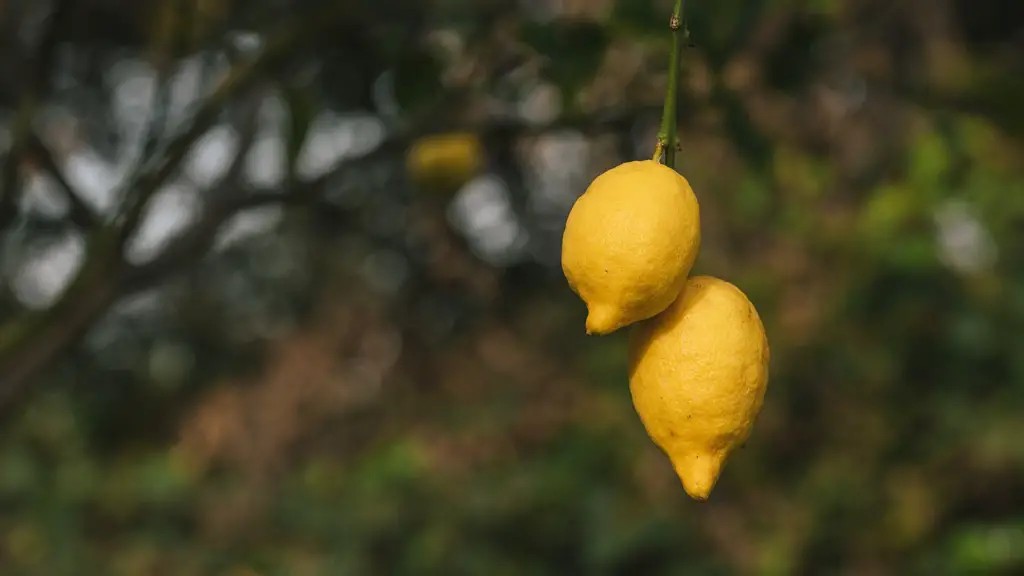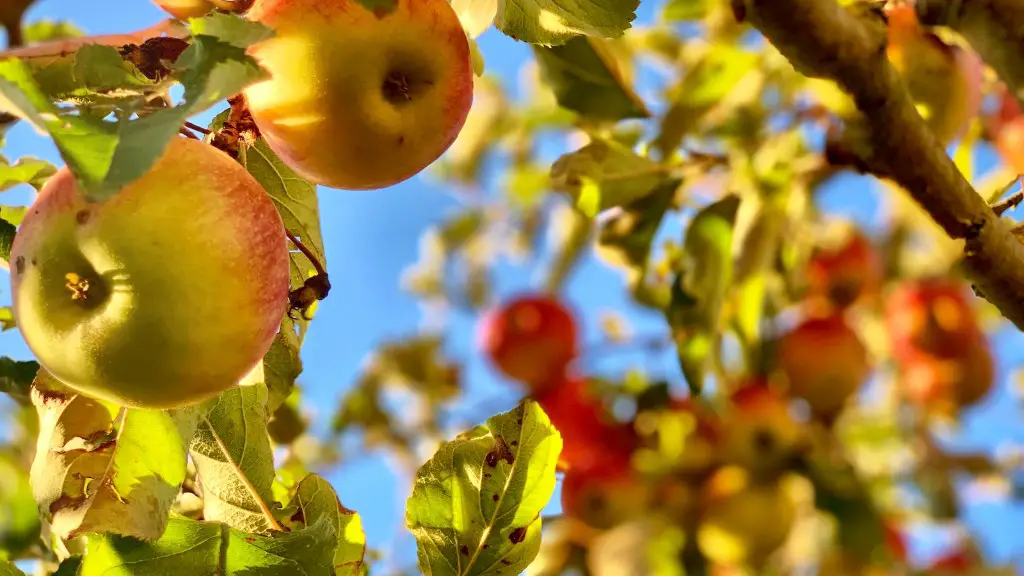Fruit on a lemon tree can be increased through proper care and maintenance. To achieve this, gardeners should prune the tree to promote new growth, water the tree appropriately, and fertilize the tree regularly. Proper pruning is an essential step for producing more lemons. Gardeners should look for any branches that are crossed, dead, or not producing much fruit and prune them off. This will encourage new growth and flowers, and ultimately lead to more fruit. Watering the tree appropriately is also important. Gardeners should give the tree enough water, but not too much. Providing too little water can cause the tree to drop its fruit, while too much can cause root rot and other diseases. Fertilizing the tree is also important and should be done every three to four months to promote healthy growth and fruit production.
Pest and Disease Control
Pest and disease control is also essential for lemon trees and will help increase fruit production. Common pests of lemon trees include aphids, mealybugs, whiteflies, spider mites, mites, and scale. All of these can be controlled through the use of insecticides. Additionally, diseases to look out for on lemon trees include Alternaria, citrus canker, crown gall, and Phytophthora root rot. Most of these can be prevented through proper pruning, watering, and fertilizing, but if a disease appears, gardeners should consult a specialist for treatment options.
Pollination
Pollination is also an important factor in increasing fruit production in lemon trees. Gardeners should take into account the regional climate when considering pollinators. If the climate is too dry or too cold, pollinators may not be present to pollinate the flowers, which means the tree won’t be able to produce fruit. Gardeners can help by introducing bee-friendly flowers to the garden to attract pollinators such as honeybees and bumblebees. Additionally, pollination can be done by hand by gently brushing the flower’s stamen with a soft cloth or a cotton swab.
Sunlight Requirements
Lemon trees need plenty of sunlight in order to produce fruit. They should be planted in an area that receives at least 8 hours of direct sunlight per day. If the area is too shady, the tree may not produce enough fruit or may produce low-quality fruit. Additionally, if the area is too hot, the tree may be prone to diseases and pests, which can reduce its fruit production.
Mulch
Using mulch is an effective way of helping lemon trees produce more fruit. Mulch helps keep the soil moist and provides nutrients to the tree’s roots. Additionally, mulch will help keep weeds away, allowing the tree to focus its energy on fruit production. When using mulch, make sure to keep it away from the trunk of the tree and to use organic mulch such as shredded bark or straw.
Proper Container Size
If the lemon tree is growing in a container, it’s important to choose the proper size. A pot that’s too small will not provide enough space for the tree’s root system and can lead to stunted growth. If the pot is too large, it can cause drainage issues and the roots may become over-saturated. An ideal pot size for a lemon tree is one that’s two-thirds the size of the tree’s root system.
Soil Requirements
Lemon trees need well-draining soil in order to grow and produce fruit. The soil should also be slightly acidic, between a pH of 6.0 and 6.5. If the soil is too alkaline, the tree may not be able to absorb enough nutrients and minerals, which can lead to poor fruit production. Gardeners should also make sure the soil is free of debris and rocks, as these can hinder the tree’s growth and its ability to produce fruit.
Pruning
Pruning is essential for encouraging new growth in lemon trees and promoting fruit production. The best time to prune a lemon tree is late winter or early spring when the tree isn’t actively growing. Gardeners should look for branches that are dead, crossed, or not producing many fruits and prune them off. If a branch is diseased, it should be removed completely and disposed of.
Fertilizing
Fertilizing is also important for lemon trees and should be done every three to four months. When fertilizing, use a balanced fertilizer that contains nitrogen, phosphorus, and potassium. Organic fertilizers such as fish emulsion and composted manure are also effective and provide nutrients to the tree. Additionally, these fertilizers help promote healthy soil, which is important for fruit production.
Irrigation
Irrigating a lemon tree is essential for keeping it healthy and producing fruit. The tree should be watered deeply and thoroughly once a week. During the summer months, the tree may need to be watered more frequently if the temperatures are particularly high or if there is little rainfall. Gardeners should keep an eye on the soil’s moisture levels and make sure not to overwater the tree, as this can lead to root rot and other diseases.

